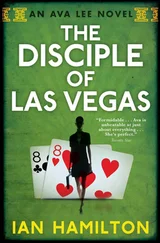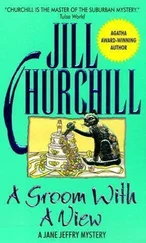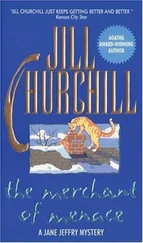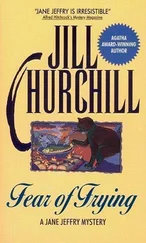Winston Churchill - Ian Hamilton's March
Здесь есть возможность читать онлайн «Winston Churchill - Ian Hamilton's March» весь текст электронной книги совершенно бесплатно (целиком полную версию без сокращений). В некоторых случаях можно слушать аудио, скачать через торрент в формате fb2 и присутствует краткое содержание. Год выпуска: 2018, Издательство: epubBooks Classics, Жанр: История, Прочая документальная литература, на английском языке. Описание произведения, (предисловие) а так же отзывы посетителей доступны на портале библиотеки ЛибКат.
- Название:Ian Hamilton's March
- Автор:
- Издательство:epubBooks Classics
- Жанр:
- Год:2018
- ISBN:нет данных
- Рейтинг книги:4 / 5. Голосов: 1
-
Избранное:Добавить в избранное
- Отзывы:
-
Ваша оценка:
- 80
- 1
- 2
- 3
- 4
- 5
Ian Hamilton's March: краткое содержание, описание и аннотация
Предлагаем к чтению аннотацию, описание, краткое содержание или предисловие (зависит от того, что написал сам автор книги «Ian Hamilton's March»). Если вы не нашли необходимую информацию о книге — напишите в комментариях, мы постараемся отыскать её.
London to Ladysmith
Ian Hamilton's March — читать онлайн бесплатно полную книгу (весь текст) целиком
Ниже представлен текст книги, разбитый по страницам. Система сохранения места последней прочитанной страницы, позволяет с удобством читать онлайн бесплатно книгу «Ian Hamilton's March», без необходимости каждый раз заново искать на чём Вы остановились. Поставьте закладку, и сможете в любой момент перейти на страницу, на которой закончили чтение.
Интервал:
Закладка:
One cannot see any gaps in the crowd; it is so full of animation that the spaces where Death has put his hand are not to be seen. The strong surges of life have swept across them as a sunny sea closes over the foundered ship. Yet they are not quite forgotten.
'Hullo, my dear old boy, I am glad to see you. When did you get up here? Have you brought ― with you? Oh, I am sorry. It must have been a fever–stricken hole that Ladysmith. Poor chap! Do you remember how he … . Charlie has gone home. He can never play polo again—expanding bullet smashed his arm all to bits. Bad luck, wasn't it? Now we've got to find a new back … . and ― was killed at Paardeberg … . spoiled the whole team.' The band struck into a lively tune. 'How long is it going to last?'
'With luck it ought to be over by October, just a year from start to finish.'
'I thought you said something about Pretoria the third week in March.'
'Ah, I must have meant May, or, perhaps, June.'
'Or August.'
'Who can tell? But I think this is the half–way house.'
The conversation stops abruptly. Everyone looks round. Strolling across the middle of the square, quite alone, was a very small grey–haired gentleman, with extremely broad shoulders and a most unbending back. He wore a staff cap with a broad red band and a heavy gold–laced peak, brown riding boots, a tightly–fastened belt, and no medals, orders, or insignia of any kind. But no one doubted his identity for an instant, and I knew that I was looking at the Queen's greatest subject, the commander who had in the brief space of a month revolutionised the fortunes of the war, had turned disaster into victory, and something like despair into almost inordinate triumph.
Other soldiers of career and quality mingle with the diversified throng. Macdonald sits on a bay pony near the club verandah talking to Martyr of the Mounted Infantry and of Central African repute. Pole–Carew, who came to the Cape as Sir Redvers Buller's camp commandant, and passed at a bound to brigadier–general, and by another still greater leap to the command of the Eleventh Division, canters across the square. General French and his staff have just ridden up. But the central figure holds all eyes, and everyone knows that it is on him, and him alone, that the public fortunes depend.
Such was the scene on the afternoon of my arrival in Bloemfontein. What of the situation? The first thing to be done after the occupation of the town was to re–open the railway. The presence of a large army in their rear and the swift advance of Gatacre and Clements compelled the invaders to withdraw from Cape Colony, so that Norval's Pont and Bethulie bridges were once more in British hands. Both were, however, destroyed or partially destroyed. Besides these, various other smaller bridges and culverts had been blown up. All these were forthwith repaired by the engineers, and through communication by rail was established between the advanced Field Army in the Free State and the sea bases at East London, Port Elizabeth, and Capetown.
In the meantime the Army at Bloemfontein lived on the reserve of rations it had carried from Modder River. When the railway was opened the line from Modder River was dropped. A broad–gauge railway, even though it be only a single line, is usually capable of supplying an army of at least 50,000 men with considerable ease, and the reader may remember how the Natal Government Railway was able to support 30,000 men through January and February, to transport reinforcements and sick, and to run all its ordinary traffic in addition. But the repaired or provisional bridges on the Bloemfontein line caused so much delay that the carrying power of the railway was seriously diminished. When a permanent bridge has been blown up two alternatives present themselves to the engineers: a high level or a low level substitute. The high level bridge, such as was thrown across the Tugela after the relief of Ladysmith, takes much longer to build, but, when built, trains are run straight over it with very little diminution of speed. It is, moreover, secure against floods.
The low level bridge must be approached by zigzag ramps, which impose frequent shuntings, and cause great delay; and it is, of course, only to be trusted when there are no floods. But it has this inestimable advantage in military operations: speed in construction. The Army must be fed immediately. So the low level bridges were chosen; hence an early but reduced supply. When this was further minimised by the passage of reinforcements the commissariat depôts could scarcely make headway, but must be content to feed the Army from day to day and accumulate at the rate, perhaps, of only one day in three, or even one in four. It was, therefore, evident that no offensive movement to the northward could be made for several weeks.
See how the stomach governs the world. By the rapid invasion of their territories, by the staggering blows which they had been dealt at Kimberley, Paardeburg, Poplar Grove, and Dreifontein, and by the bad news from Natal, the Boers in the Free State were demoralised. If we could have pressed them unceasingly the whole country would have been conquered to the Vaal River. Encouraged by Lord Roberts's Proclamation, and believing that all resistance in the Southern Republic was at an end, great numbers of Free Staters returned to their homes, took the oath of neutrality, and prepared to accept the inevitable.
But while the Army waited, as it was absolutely forced to wait, to get supplies, to get horses—to get thousands of horses—to give the Infantry new boots, and all arms a little breathing space, the Boers recovered from their panic, pulled themselves together, and, for the moment, boldly seized the offensive.
Great, though perhaps temporary, were the advantages which they gained. The belief that the war in the Free State was at an end, which had led so many of the Burghers to return to their farms, was shared to some extent by the British commander, and loudly proclaimed by his colonial advisers. To protect the farmers who had made their peace the Imperial forces were widely extended. A line was drawn across the Free State from Fourteen Streams, through Boshof, Bloemfontein, and Thabanchu, south of which it was assumed that the country was pacified and conquered.
Meanwhile Olivier and the southern commando, recalled from their operations in the Cape Colony, were making a hurried, and, as it seemed, a desperate march to rejoin the main Boer forces. They expected the attack of the same terrible Army which had already devoured Cronje; nor was it until they reached Ladybrand and found only Pilcher with a few hundred men snapping at their heels that they realised that the bulk of the British troops were for the moment practically immobile at Bloemfontein. Then they turned.
Pilcher fled warily before them, and fell back on Broadwood's Brigade, near Thabanchu. With renewed courage and strong reinforcements from their friends north of the line of occupation they pressed on. Broadwood was compelled to fall back on the Ninth Division, which was camped west of the waterworks. He made a twenty–mile march at night and laagered in the small hours of the morning, thinking, as most people would think, that pursuit was for the time being shaken off. Morning broke, and with it a Boer cannonade.
I do not intend to be drawn into a detailed description of the action that followed. For many reasons it deserves separate and detailed consideration, chiefly because it shows the Boer at his very best: crafty in war and, above all things, deadly cool. In a word, what happened was this: The shells crashed into the laager. Everyone said, 'Take the blasted waggons out of the shell fire. We will cover their retreat'; which they did most beautifully: Broadwood displaying all the skill which had enabled him to disentangle the reconnaissance of the 5th of April near the Atbara from the clutches of the Dervishes. The said waggons hurried out of the shell fire only to fall into the frying–pan of an ambuscade. Guns, prisoners, and much material fell into the hands of the Boers. The Ninth Division retreated suddenly—too suddenly, say the Army, with other remarks which it is not my business to transcribe—on Bloemfontein, and the force of the storm fell on Gatacre.
Читать дальшеИнтервал:
Закладка:
Похожие книги на «Ian Hamilton's March»
Представляем Вашему вниманию похожие книги на «Ian Hamilton's March» списком для выбора. Мы отобрали схожую по названию и смыслу литературу в надежде предоставить читателям больше вариантов отыскать новые, интересные, ещё непрочитанные произведения.
Обсуждение, отзывы о книге «Ian Hamilton's March» и просто собственные мнения читателей. Оставьте ваши комментарии, напишите, что Вы думаете о произведении, его смысле или главных героях. Укажите что конкретно понравилось, а что нет, и почему Вы так считаете.











